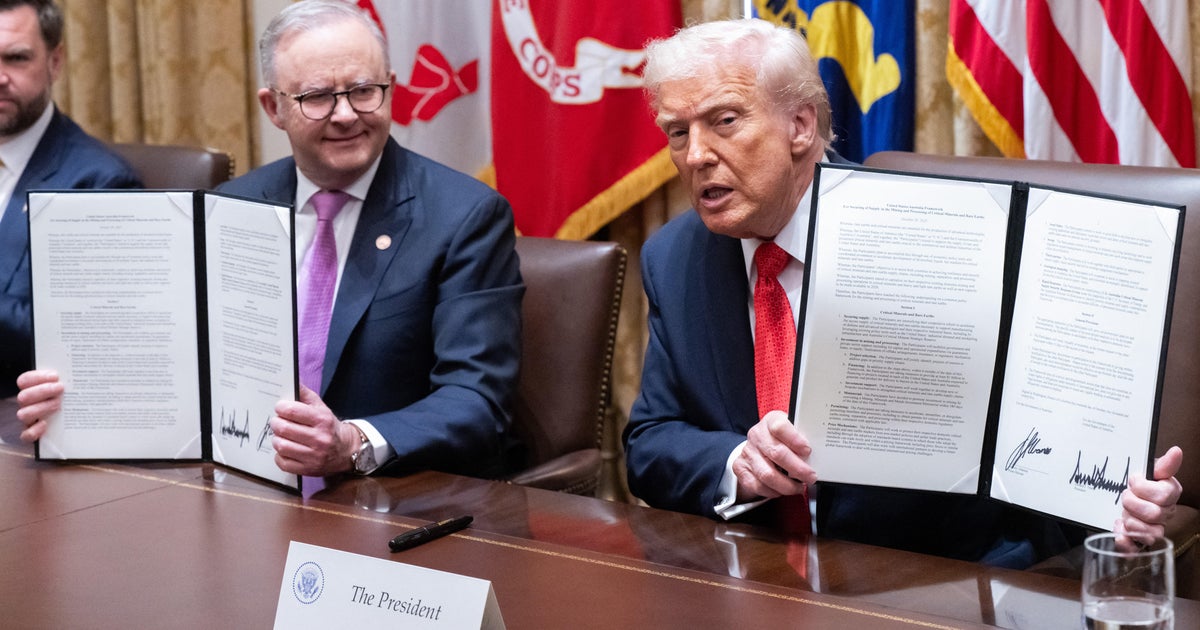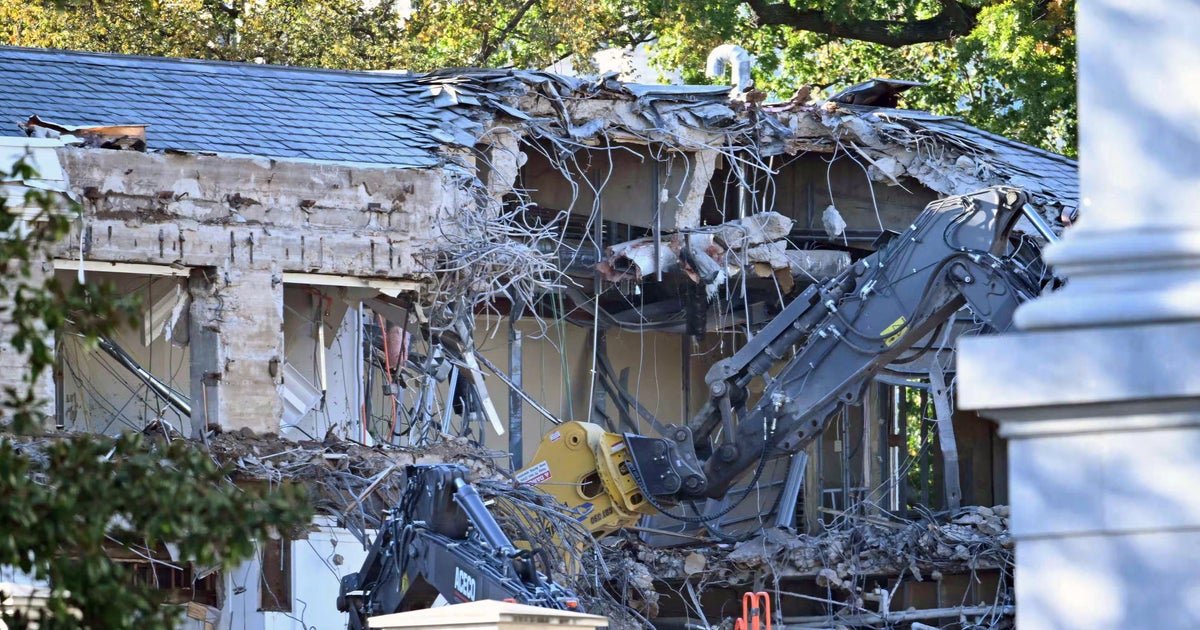Washington — President Trump and Australian Prime Minister Anthony Albanese signed a critical minerals deal at the White House on Monday, as the U.S. eyes the country’s rich rare earth resources while China is imposing tougher rules on exporting its own minerals abroad.
Mr. Trump said the deal, which will entail up to $8.5 billion in projects, had been negotiated over several months. Albanese said the deal would take the U.S.-Australia relationship “to the next level.”
“In about a year from now we’ll have so much critical mineral and rare earth that you won’t know what to do with them,” Mr. Trump said, seated alongside Albanese. “They’ll be worth $2.”
Critical minerals include some of the elements necessary for modern technology, including lithium and silicon. They also include rare earth elements, which are used to make magnets that are used in defense and aerospace technology.
The White House says the U.S. and Australian governments intend to invest more than $3 billion in critical minerals projects in the next six months. But the framework released by the Australians says the two countries will invest $1 billion in the next six months. The framework the Australians released says the two countries will work together to accelerate the secure supply of critical minerals for defense manufacturing, streamline or deregulate the permitting process for critical minerals and rare earths, protect domestic critical minerals and rare earth markets from unfair trade and address gaps in key supply chains, among other things.
The U.S.-Australia deal comes after Beijing announced it will require foreign companies to get approval from the Chinese government to export magnets containing even trace amounts of rare earth materials that originated from China or were produced with Chinese technology. The Trump administration says this gives China broad power over the global economy by controlling the tech supply chain. The move led Mr. Trump to threaten an additional 100% tariff on Chinese goods.
The Trump administration and the president himself have been focused on securing rare earths deals, in part to find alternatives to China. Earlier this year, Mr. Trump struck a deal with Ukraine to give the U.S. access to that country’s minerals.
Albanese said the critical minerals deal also signals the strong partnership between the U.S. and Australia.
“We are great friends and we’re great allies,” Albanese said Monday. “And this is a relationship that’s been forged in the battlefields of the world. We have stood side by side for freedom and democracy.”
The White House said Australia is also making new defense investments, including the purchase of $1.2 billion in unmanned underwater vehicles. Since February, the White House said Australia has contributed $1 billion to modernize the U.S. submarine industrial base. A trilateral security partnership called AUKUS involving the U.S., Australia and the United Kingdom — which was first struck during the Biden administration — aims to counter China in the Indo-Pacific, and producing submarines for that region is a key part of that security alliance.
“We have the best submarines in the world, anywhere in the world,” Mr. Trump said Monday.


